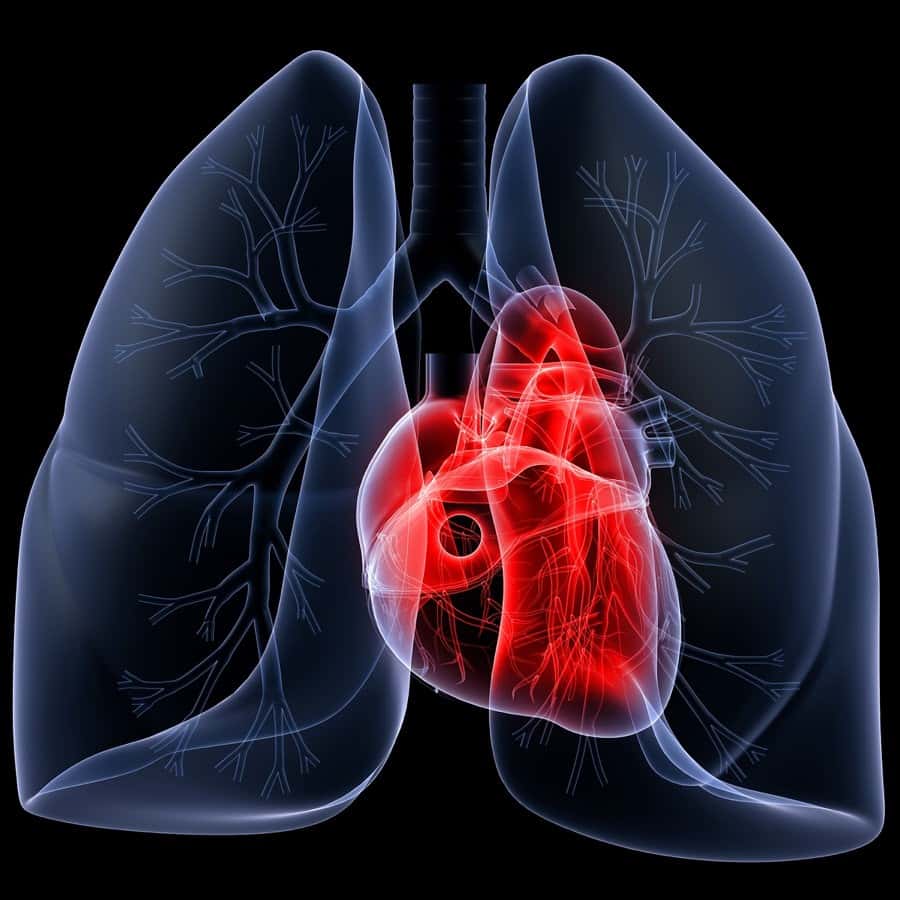
The heart drug amiodarone (Pacerone) is prescribed for serious, life-threatening heart rhythm abnormalities, such as ventricular fibrillation or unstable ventricular tachycardia. These technical terms describe heart problems that are so rare we suspect the drug is also being prescribed for other, unapproved, purposes such as atrial fibrillation. Amiodarone can trigger a number of serious, even life threatening, side effects.
What Are the Complications of the Heart Drug Amiodarone?
Q. I read your article on the heart drug amiodarone. I wish you would write about the danger of lung complications with amiodarone. Lung toxicity occurs in significant numbers of users. This frequently leads to pulmonary fibrosis, which can be fatal.
Amiodarone even comes with a black box warning. I speak from first-hand experience, having lost my husband due to amiodarone lung toxicity three years ago.
A. We are very sorry for your loss. The FDA cautions that amiodarone should be used only for life-threatening heart rhythm disturbances when other treatments don’t work.
Here is another example of how the heart drug amiodarone caused pulmonary fibrosis:
Q. Thank you for writing about amiodarone. My late husband was prescribed amiodarone after bypass surgery. I guess that was just as a precaution, because he didn’t have atrial fibrillation.
It caused pulmonary fibrosis that resulted in his death five years later. Of course, the cardiologist denied that was the cause and we couldn’t prove it. Still, the pulmonologist had no doubt the drug was responsible.
A. We are so sorry to learn about this tragedy. According to the FDA, doctors should prescribe amiodarone only to patients with life-threatening heart rhythm disturbances that have not responded to other treatment. That’s because this drug is so dangerous.
The official prescribing information warns that:
“Rates of pulmonary toxicity have been reported to be as high as 17% and is fatal in about 10% of cases.”
In addition to lung problems, amiodarone can change thyroid and liver function. It may also interact with many other drugs.
Side Effects of Amiodarone:
This medication has many serious side effects, including pulmonary fibrosis and other lung complications. Diagnostic tests may reveal foamy-looking macrophages, white blood cells that are part of the body’s immune response (Rossi et al, European Respiratory Review, Jul. 19, 2017).
The drug appears to damage the cells lining the lungs and airways directly (Wolkove & Baltzan, Canadian Respiratory Journal, Feb. 2009). Up to 5 percent of people taking amiodarone for more than a short time may develop lung complications.
The drug may also cause nerve damage, digestive distress, visual problems, fatigue, heart failure, liver injury, thyroid problems (both hyperthyroidism and hypothyroidism) and serious skin reactions. A metabolite of amiodarone penetrates body tissues and accumulates in them, which can delay recovery from these problems (Nacca et al, Journal of Thoracic Disease, Dec. 2012).
Although dronedarone (Multaq) is sometimes used in place of of amiodarone, it too can cause liver and heart problems (Chen et al, Environmental and Molecular Mutagenesis, online Feb. 5, 2018; Karkhanis et al, Toxicological Sciences, Jan. 27, 2018). In one case of an 85-year-old man with a serious heart rhythm, the doctors tried dronedarone but he had a fatal reaction (Rizkallah, Kuriachan & Brent Mitchell, BMC Research Notes, Jul. 27, 2016).
Stopping Amiodarone:
Both amiodarone and dronedarone have the potential to interact in a dangerous way with many other medications as well as grapefruit juice. Despite the potential for these frightening side effects, no one should ever stop amiodarone without careful medical supervision. Some people with life-threatening arrhythmias that have not responded to any other drugs may need to stay on amiodarone despite its potentially serious side effects.

